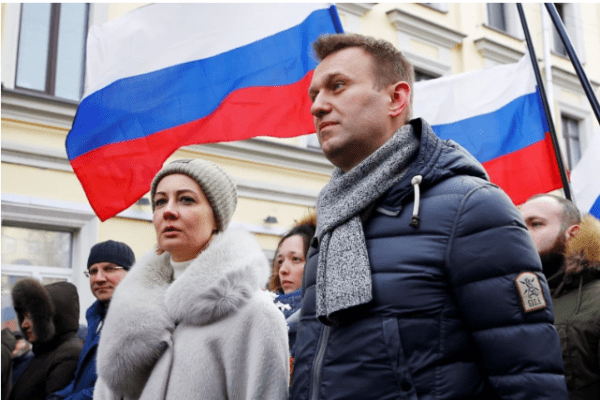The body of Russian opposition leader and political activist, Alexei Navalny, has finally been handed over to his mother after being held for eight days following his death. Navalny passed away Friday, February 16 in an Arctic prison colony where he was serving a 19-year sentence under charges of extremism.
The death was reported by prison officials as “sudden death syndrome” – and claim that following a short walk in his Siberian penal colony, Navalny reported feeling unwell before he collapsed, losing consciousness. Lyudmila Navalnaya, the mother of Alexei Navalny, said that investigators refused to release her son’s body to her unless she agreed to a secret private funeral and no public farewell. After continuous refusals to concede to the demands of the authorities and calling out their attempted “blackmailing,” Navalanaya was given her son’s body. The funeral finally has a date and is set to take place Friday, March 1, at the Borisovskoye cemetery in Moscow. However, authorities have done everything within their power to constrain the funeral and it remains unclear whether a public gathering will be permitted.

Supporters, however, do not await a funeral to publicly grieve for the activist and have been laying flowers at two important sites in Moscow; the ‘Wall of Grief’ and the Solovetsky stone, which memorialise victims of Soviet repression. This show of support for their fallen leader is at great personal risk, with presumably the Federal Security Service (FSB) watching and filming all who visit these sites. Already, police have arrested around 400 people, who they’ve deemed to be showing too much support.

At just 47 years of age, Navalny’s sudden death can be attributed to the harsh and inhumane conditions of his imprisonment. Ultimately, many had expected him to die in prison but did not expect it to be so soon. Since news of his death, many global leaders have called out Putin for his silencing of Alexei Navalny. In a speech made by Joe Biden, the United States president directly holds Putin responsible for Navalny’s death as well as poisoning him in 2020.
Returning to Russia after surviving the Novichok (Soviet nerve agent) poisoning was seen by many as one of Navalny’s most inspirational acts, showing that he would not abandon his people even if it meant sacrificing his life. Through various campaigns built on anti-corruption, Navalny sought to expose the oligarchic structure of Russian leadership and the conservation of power within the elite. The actions he took to shine light on corruption ranged from organising anti-government demonstrations, running for office, and funding the Anti-Corruption Foundation (FBK).
The power Alexei Navalny possessed to inspire Russians to fight for change has not died with him but rather is succeeded by his wife, Yulia Navalnaya. Prior to her husband’s death, she avoided any sort of political role in order to focus on supporting Navalny and protecting their children, but now she has stepped up to fill his place. In a video posted to social media just three days following the announcement of her husband’s death, Yulia Navalnaya displays her resilience proclaiming “In Killing Alexei, Putin killed half of me, half of my heart and half of my soul, but I have another half left – and it is telling me I have no right to give up.”

Navalnaya is recognised for her poise, intelligence, charisma, and determination, all traits which become evident through the way in which she addresses Putin directly. Recently demanding the release of her husband’s body, the power of her words is undeniable, saying “You tortured him alive, and now you keep torturing him dead. You mock the remains of the dead;” her words resonate profoundly with a predominantly Christian society. However, despite her potential to lead this Russian movement, Navalnaya faces the challenge of fueling the anti-corruption cause from abroad, currently living in Germany.
Uncertainty remains of what will become of the anti-corruption movement passed on from one Navalny to the next, but what is certain is that Putain will do all he can to stop it.
Cover Image: Navalny’s image set atop flowers following news of his passing.







